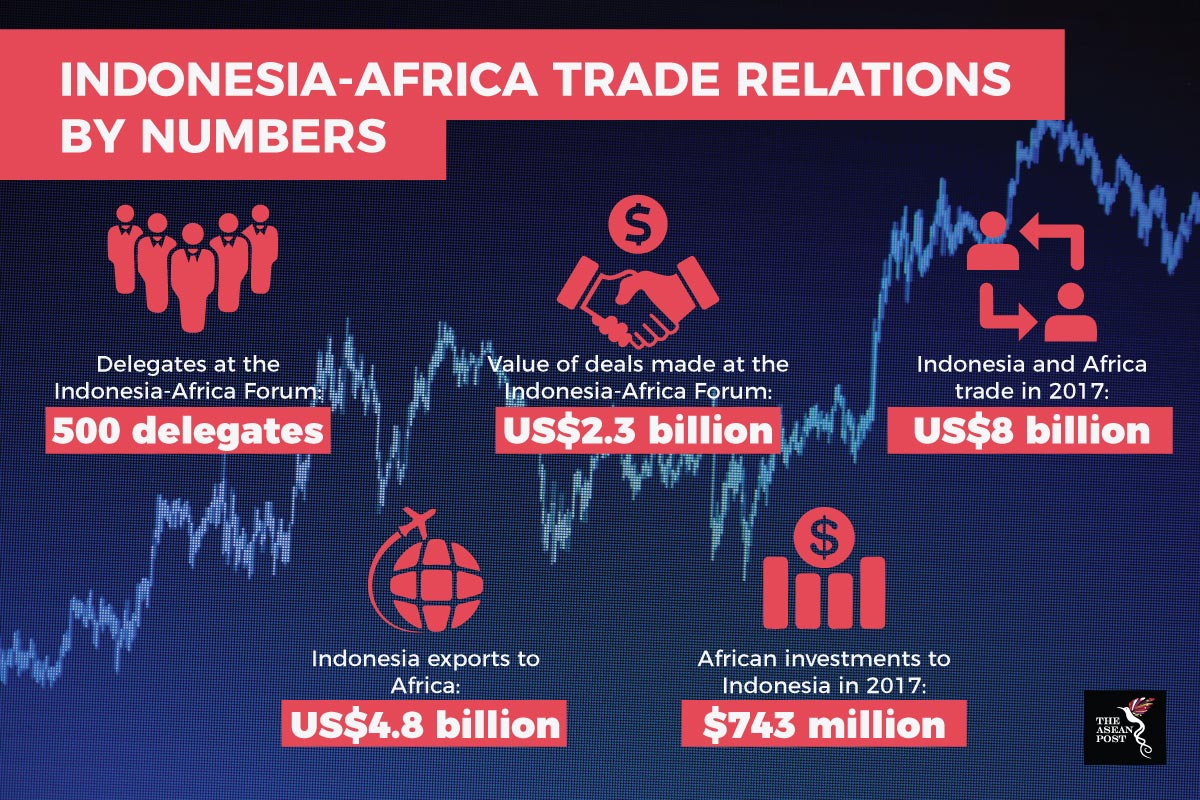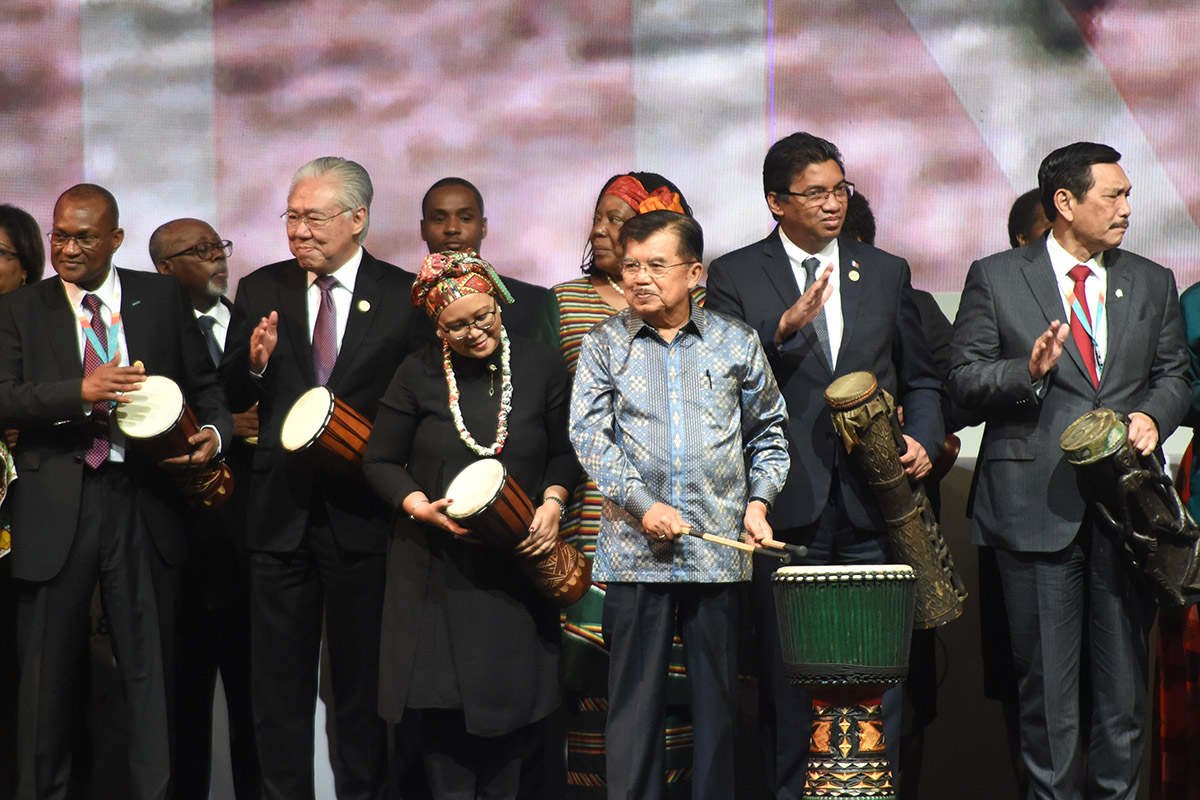Indonesia recently concluded the Indonesia-Africa Forum held in Nusa Dua, Bali which saw the attendance of over 500 delegates from Indonesia and Africa. The forum was held to foster a strong economic relationship between Indonesia and Africa.
The forum was attended by participants from over 50 African countries, including government officials and diplomats, members of state-owned companies and the private sector. Among the topics discussed at the forum were “Strengthening Connectivity Cooperation Initiative: Why It Matters and How It Supports Growth” and “South-south and Triangular Cooperation: An Innovative Partnership for Mutual Progress.”
Aside from that, the forum became a meeting point for government officials and businessmen to network, build relationships and hash out business deals.
The Indonesia-Asia Forum marks a reinvigoration of the relationship between the two entities. Indonesia’s relationship with the continent goes way back. Africa and Indonesia share a history of being colonised but even more meaningful, African nations and Indonesia carry a spirit of resistance and resoluteness embodied by their citizens taking charge of their own histories and overthrowing their colonisers. The Afro-Asia Conference in 1955 or better known as the Bandung Conference was a distillation of this spirit. Then Indonesian president Soekarno managed to gather colonised nations from around the world to discuss economic cooperation and to oppose colonialism.
The recent Indonesia-Africa Forum shows that the Bandung spirit still lives on to this day. The forum emphasised on stronger Indonesia-Africa cooperation for the benefit of both, the country and the continent. Indonesian local media reported that the two-day forum facilitated a total trade agreement potential of US$2.3 billion. On the first day of the forum as many as 10 trade agreements valued at US$586.56 million were signed while on the second day there were additional trade transactions worth nearly US$500 million.

Aside from that, Indonesia is also working to remove trade barriers with African countries. On the sidelines of the forum, Indonesian Trade Minister Enggartiasto Lukita held bilateral meetings with delegates from Morocco, Somalia and Nigera to discuss trade. According to Enggartiasto, Indonesia is working on negotiating preferential trade agreements (PTAs). A preferential trade agreement is an agreement that gives participating countries preferential treatment such as lower tariffs that is not enjoyed by the rest of the world.
Indonesia currently sees great potential in trading with Africa, especially as a destination for Indonesian exports. Last year, trade between Indonesia and Africa amounted to US$8 billion. Furthermore, Indonesian exports to Africa last year was valued at US$4.8 billion. Indonesia hopes to see the number grow this year, and if the PTA negotiations pull through, the number could rise to a significant amount.
Enggartiasto also emphasised that the PTA is not only just for exports but also for investments. This provides a great opportunity for Indonesian companies to increase their presence abroad. Among the business deals mentioned earlier included a US$26.7 million deal in Niger involving state-owned contractor, Wijaya Karya. There are also investments going the other way, with African companies investing in Indonesia too.
Indonesia’s manoeuvre to build ties with Africa comes at a critical juncture in the global economy. As the US-China trade war doesn’t look like dying down, Indonesia has to look for new export destinations. Jumping into Africa’s market of 1.2 billion people – twice the size of ASEAN’s market – would prove to be a wise move for Indonesia.
Africa in recent years has become a site of contention between large powers. China and India in particular have made moves to extend their influence there. India, Japan and several African nations are currently working on the Asia-Africa Corridor, which some have pointed out to be a move to counter China’s Belt and Road Initiative. Meanwhile, China has poured billions of dollars in infrastructure investments in various African countries. China has also established their first international naval base in Djibouti.
Indonesia is smart to look for new markets at a time when two of the world’s largest economic powers are at loggerheads. Furthermore, it also increases their influence globally. With such power moves and the economy slated to be the fourth largest in the world by 2050, perhaps Indonesia is on its way to superpower status.
